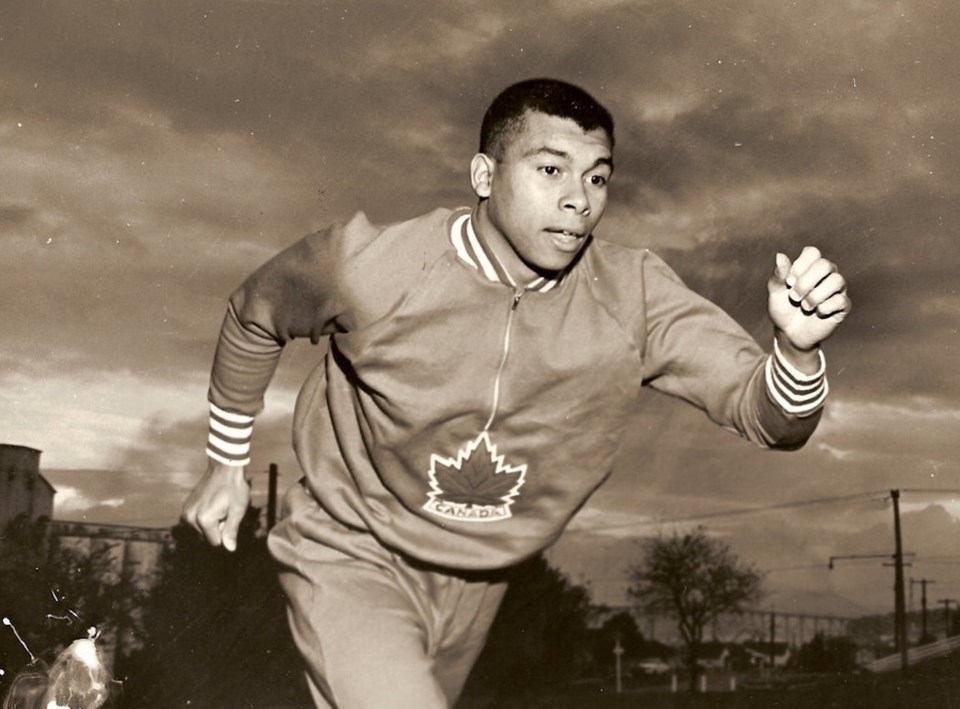Following Harry Jerome's tragic death in 1982, it was decided by the Achilles Track and Field Society that a competition be initiated to remind generations to come of Harry's outstanding contributions and performances during his career over three Olympic Games.
Brian Pound, journalist and close friend of Harry's said "We all know Harry Jerome as a world class runner, world record holder and Olympic medalist, but he was much more than that.
“He was a strong advocate and voice for amateur athletics, an educator, champion of the underprivileged and part radical and part activist. He had his critics but he learned to overcome them and was a better man for it. Put it all together and you simply had an incredible athlete and human being who went out of his way to try and make things better for a whole lot of different people.”
At age 18 the North Vancouver sprinter broke the 31-year-old Canadian record for the 220-yard sprint - held by 1928 double Olympic gold medallist Percy Williams. A year later he emerged as an international sensation by equaling the world record for 100 metres by clocking 10.0 seconds at the Canadian Olympic Trials in Saskatoon. That effort marked the young Canadian as one of the sprinters to watch at the upcoming 1960 Summer Olympic Games in Rome.
But what should have been a promising Olympic debut for Jerome became instead the first of many difficult trials that served as a test of the athlete's personal motto: Never Give Up.
Jerome pulled a muscle in the 100-metre semi-finals in Rome and was out of the competition. Two years later, at the 1962 British Empire and Commonwealth Games in Perth, Australia, world record holder Jerome pulled up lame and finished last in the 100-yard final. The media lambasted him as "a quitter" even as tests confirmed he had suffered severely torn left thigh muscles that would keep him out of competition for all of 1963, with a possible prognosis of never again being able to compete.
He returned, however, in 1964 and was finally able to reap the benefit of his work, tenacity and considerable talent.
At the Summer Olympics in Tokyo Jerome earned a bronze medal in the 100-metre final, rightfully earning his spot on the Olympic podium and a respected place among the ranks of the world's fastest men. Two days later he finished fourth in the 200 metres, confirming his place among the great sprinters of his day while finally earning some grudging respect from Canadian media that seemed to relish in judging him harshly.
In 1968 he represented Canada at his third Olympic Games - an extraordinary feat in itself given that longevity in the sport was not what doctors were predicting when he suffered his first major injury back in 1960. He finished seventh in the Olympic final at Mexico City, confirming that despite the array of physical troubles and negative press that had plagued him over the years, he never gave up.
Harry Jerome retired from international competition at the end of the 1968 season, ending a career that included stints as the world's fastest man in tying the 100 yards world record of 9.3 seconds in 1960.
Two years later he lowered it to 9.2 in a memorable day at Vancouver's Empire Stadium. In 1966 he improved again upon that mark by running 9.1. During his career he also held the world indoor mark for 60 yards and ran the anchor leg for his University of Oregon relay team that set a world mark in the 4x110-yard relay.
He remained a mentor and inspiration for Canadians, working in the Federal Ministry of Sport and, later, developing the B.C. Premier's Sport Awards Program to encourage young people to become active and strive for their own athletic dreams. He received the Order of Canada in 1971 and was named British Columbia's Athlete of the Century.
Jerome died suddenly from a brain aneurysm on December 7, 1982, at age 42.
The Harry Jerome International Track Classic is held annually in honour of Harry Jerome, whose talent and tenacity on and off the track inspired a generation of Canadians to "never give up" in their own endeavours. His legacy of athletic excellence and commitment to youth and sport remain pillars of motivation and inspiration today.
Tickets for the 2018 Vancouver Sun Harry Jerome Track Classic which will feature Canada's 2016 triple Olympic medalist, Andre De Grasse on June 26 and June 27 in a China vs Canada Team Sprint Challenge for the Pacific World Cup are now on sale. Visit www.harryjerome.com.



